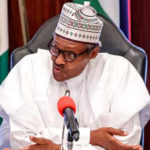Indication to this effect came to the fore in Abuja last week Wednesday when Governors Abubakar Sani-Bello of Niger State, Godwin Obaseki of Edo State and Atiku Bagudu of Kebbi State held a meeting with the World Bank’s Senior Director, Dr Jaime Saveedra, on the programme.
The modalities for the programme, which will last for four years, are being worked out with the Global Apex bank by the benefiting states.
Speaking at the meeting, Governor Sani-Bello expressed concern over the lack of funds required to revamp the education sector in the country, but maintained that the improvement of the professional status of teachers and the restoration of their “glory” would be a step to solving the crises in the sector.
He also said that the massive infrastructural and technical deficiency in the sector must be addressed along with adequate and sustainable funding to enable the revival of the sector.
Presidential aspirant gives PDP 48 hours to drop Atiku, calls for fresh primaries
The governor noted that the teaching profession had lost its reputation and quality, and stressed the need for prompt action to be taken, especially in bridging the gap and restoring the glory of the profession so as to motivate teachers for optimal performance.
Bello said, “We must find ways to ensure that teaching as a profession regains its glory. We must bring back the prestige in teaching. There has to be a lot of awareness campaign on this and we also have to work on teachers’ income in order to motivate them.
“There is need to focus on how to improve teachers’ welfare and ensuring their training and re-retraining.
“Over time, the teaching profession has been neglected; therefore, there is a need to find ways to improve the prestige in teaching.”
He also disclosed that his administration had established teachers’ institutes to groom students with passion for the teaching profession at early stage of their lives and to be posted to their communities to render teaching service.
He also said that unqualified teachers who were already in the system were being retrained to equip them with modern teaching methodology and global best practices.
On efforts at improving the girl-child education, the governor said plans were afoot to establish new schools in order to bring schools closer to communities so that children in different wards could access primary and secondary education.
Meanwhile, the senior director, Education Global Practice of the World Bank, Dr Jaime Saavedra, identified inadequate funding as the major challenge in the education sector of Nigeria.
He noted that though the deterioration in education is global, there is the need for governments at all levels to allocate 20 per cent of annual budgetary allocation to the sector.
World Bank country director, Mr Rachid Benmessaoud also advised that if Nigeria must improve her education sector, deliberate efforts should be made not to politicise the sector.






